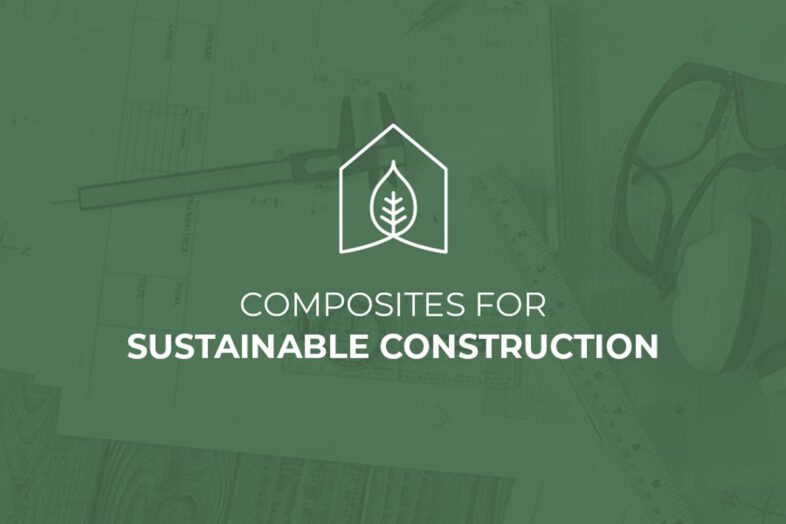The construction sector has always been one of the most important and most profitable industries. However, it has also been one of the most polluting businesses. The construction sector consumes 50% of natural resources and 40% of energy globally. Besides, it generates 50% of all the planetary waste. Luckily, composites can help changing these alarming facts.
Construction materials such as concrete, steel, asbestos and certain kinds of paint and varnishes pollute the environment. These materials can also cause respiratory diseases in the people who inhabit the buildings as well as in the workers who obtained them. Getting traditional construction materials implies a high consumption of energy. This consumption is associated with extraction processes, chemical treatments and transportation to their final destination.
Thanks to years of research and development, significant progresses in the creation of new construction materials have been achieved. Today, it is possible to create sustainable buildings using composites. Composites are made by combining of two or more materials. The goal of this process is to obtain a final material with qualities that are superior to those of the two materiales alone. Initially used by the aerospace industry, composites are becoming popular in the construction sector. This popularity is an important change in favor of sustainability.
Benefits of Composites
The use of these materials, instead of choosing others such as concrete or steel, has many advantages. Some of them are:
- Lightness: the lightness of composites makes it easy to transport and assembly them on-site.
- Corrosion: composites perform excellently against corrosion and the impact caused by environmental agents, a reason why they are used in coastal zones.
- High mechanical resistance: they can support more weight and this allows them to be used as structural materials.
- Flexibility: composites are highly malleable, a characteristic that brings creativity of design.
- Cleaning properties: since they repel water, they are not affected by rain. This allows composites to be used in outdoor structures such as roofs and façades.
- Tailor-made finishes: composites enable different types of surface finishes with different grades of luminosity.
- Insulation properties: ecological materials have acoustic and thermal insulation properties.
Given all these benefits, the use of this type of materials is revolutionizing the construction industry. These materials pollute less and contribute to the protection of the environment, so its presence is only going to increase in the future.












